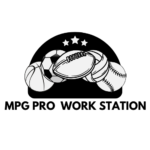In the world of sports, nutrition isn’t just a sidekick; it’s the superhero cape that athletes wear to unleash their full potential. Gone are the days when a protein shake and a banana were considered cutting-edge. Welcome to the era of next level sports nutrition, where science meets culinary delight and athletes fuel their bodies like finely tuned machines.
Next Level Sports Nutrition
Next level sports nutrition integrates scientific principles with personalized dietary strategies. This approach enhances athletic performance by emphasizing nutrient timing, quality ingredients, and hydration.
The Science Behind Effective Sports Nutrition
Effective sports nutrition relies on research-driven methods. Studies indicate that macronutrient ratios and meal timing significantly influence an athlete’s performance. Carbohydrates serve as the primary energy source, especially during high-intensity activities. Protein supports muscle repair and growth, while fats offer sustained energy during endurance events. Hydration remains crucial, as even mild dehydration can hinder performance. Tailoring nutrition plans based on individual needs and specific sports enhances results.
Key Nutrients for Athletes
Athletes require specific nutrients to optimize their performance. Carbohydrates, essential for energy, fuel both training and recovery. Protein contributes to muscle recovery and growth, with recommendations ranging from 1.2 to 2.0 grams per kilogram of body weight daily. Healthy fats, such as those from avocados and nuts, support hormone production and inflammation reduction. Micronutrients, including vitamins A, C, D, and minerals like calcium and iron, play vital roles in overall health. Supplementation may be beneficial, yet it’s recommend that athletes consult with a healthcare provider to determine individual requirements.
Implementing Next Level Sports Nutrition

Implementing next level sports nutrition requires careful attention to meal planning and judicious use of supplements. Athletes achieve optimal performance through tailored nutrition strategies.
Meal Planning for Optimal Performance
Creating a meal plan ensures athletes meet their specific energy and nutrient requirements. Start by calculating daily caloric needs based on activity level and goals. Include diverse sources of carbohydrates, protein, and fats in balanced meals. Choose whole foods rich in vitamins and minerals to support overall health. Plan meals around training schedules to optimize nutrient timing. A pre-workout snack could consist of easily digestible carbohydrates, like oatmeal with fruit, to fuel the body. Post-exercise, protein intake from sources like chicken or legumes aids in muscle recovery. Monitoring progress and making adjustments create effective and adaptive meal strategies.
Supplements: When and How to Use Them
Using supplements enhances dietary efforts but should complement, not replace whole foods. Understand that timing and type of supplement matter significantly. Creatine and whey protein often support muscle recovery and growth when consumed post-workout. Beta-alanine and branched-chain amino acids (BCAAs) may improve performance and reduce fatigue when taken before workouts. Hydration supplements like electrolytes play a crucial role during extended training sessions. Always consult with a healthcare provider to tailor supplementation plans based on individual health needs and specific training goals. Safety and effectiveness should remain priorities in any supplementation route chosen.
Tailoring Sports Nutrition to Different Sports
Sports nutrition must adapt to the specific demands of different athletic disciplines. Each sport requires unique nutritional strategies to maximize performance and recovery.
Endurance Sports
Endurance athletes need a diet rich in carbohydrates to fuel prolonged activity. Carbohydrates should account for 60-70% of total calorie intake. Hydration plays a critical role, so regular electrolyte replenishment is essential during long training sessions. Additionally, incorporating easily digestible snacks, such as energy gels or bananas, can maintain energy levels. Protein contributes to muscle repair, making it important for recovery post-event. Targeting 1.2 to 1.4 grams of protein per kilogram of body weight helps support muscle health.
Strength Training
Strength athletes require a different nutritional focus. They benefit from increased protein intake, typically around 1.6 to 2.2 grams per kilogram of body weight, to support muscle growth and repair. Carbohydrates still play a role, providing energy for high-intensity workouts. Including healthy fats in the diet aids in hormone production, which is vital for muscle development. Timing meals around workouts enhances effectiveness, suggesting that a protein-carb-rich meal before and after training optimizes results. Prioritizing whole foods ensures athletes receive vital micronutrients that support overall performance.
Maintaining Energy and Recovery
Athletes experience the need for effective strategies to maintain energy levels and support recovery. Nutrition plays a pivotal role in optimizing performance.
Pre- and Post-Workout Nutrition
Prioritizing pre- and post-workout nutrition enhances performance and recovery. Consuming carbohydrates before training supplies energy, with recommendations suggesting 30-60 grams in the 30-60 minutes prior to workouts. Protein intake also proves vital, and athletes should aim for 10-20 grams following intense exercise for optimal muscle recovery. Incorporating easily digestible snacks can provide necessary fuel without causing discomfort. Post-exercise, a balanced meal containing carbohydrates and protein within 30 minutes aids in glycogen replenishment and muscle repair. Examples include a banana with a scoop of whey protein or a turkey sandwich. These strategies contribute significantly to sustaining energy and promoting recovery.
Hydration Strategies
Hydration strategies remain critical for athletic performance and recovery. Maintaining optimal fluid levels helps prevent dehydration, which can hinder performance. Athletes should drink water consistently throughout the day and consider electrolyte-rich beverages during long training sessions or competitions. Monitoring urine color can serve as a simple guide; pale yellow indicates proper hydration. Recommendations suggest consuming 500-700 milliliters of water two to three hours before exercise. During workouts lasting over an hour, a combination of water and electrolytes improves endurance and stamina. Post-exercise hydration should focus on replenishing lost fluids, targeting a fluid intake of approximately 1.5 liters for every kilogram of weight lost during exercise. Adhering to these hydration strategies enhances overall athletic performance and aids recovery.
Conclusion
Next level sports nutrition is a game changer for athletes seeking to maximize their performance. By focusing on personalized dietary strategies and nutrient timing, athletes can fuel their bodies more effectively. Prioritizing whole foods and understanding the specific needs of their sport allows for tailored meal planning that supports both energy levels and recovery.
Incorporating the right supplements at the appropriate times further enhances these efforts, ensuring that athletes meet their unique health and training goals. With a commitment to research-driven practices and a careful approach to nutrition, athletes can unlock their full potential and achieve remarkable results in their respective disciplines.



